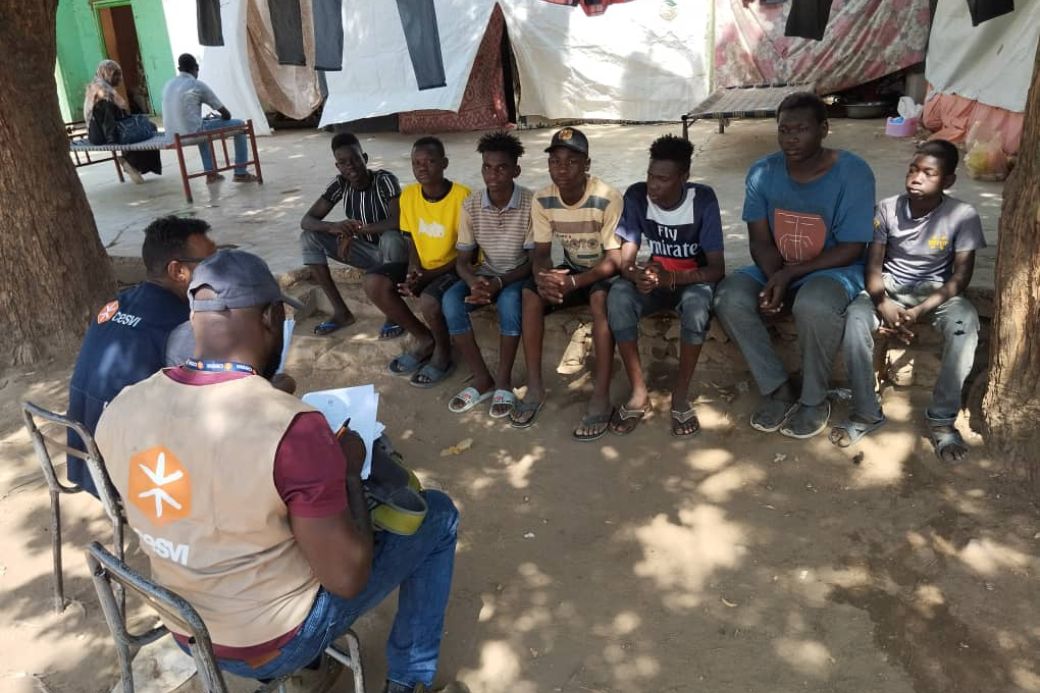After 550 days under siege, El-Fasher, the capital of North Darfur, has fallen into the hands of the Rapid Support Forces (RSF) militias. Twenty years after the genocide that bled the region dry, the news emerging from Sudan today revives the horrors of the past: massacres of civilians, ethnic cleansing, mass rapes, homes set ablaze, and tens of thousands of people forced to flee. Sudan has once again become the stage of systematic violence, targeting above all women, children, and ethnic minorities. The scale of the tragedy is immense: an estimated over 150,000 people have been killed.
In this dramatic context, CESVI is operating in the country’s Red Sea State to meet the protection needs of displaced populations and host communities.
Hunger, disease and extreme violence: The plight of the Sudanese people
Two and a half years after the outbreak of conflict between government forces (SAF) and the RSF militias, the country is being swept by one of the world’s worst humanitarian crises. Over 30 million people are in need of humanitarian assistance, nearly 10 million have been internally displaced, and more than 4 million have sought refuge in neighbouring countries.
Hunger is spreading. The conflict has devastated key agricultural areas and disrupted supply chains, pushing 24.6 million people into acute food insecurity. In many regions, famine is already a grim reality, with hundreds of thousands surviving by eating leaves or flour mixed with water.
Essential services are collapsing: only a quarter of health facilities remain operational in the worst-affected areas, with medicine supplies exhausted and minimal staff available. Cholera has already claimed thousands of lives, fuelled by contaminated water and the breakdown of sanitation systems. More than 13 million children are out of school, losing access to education and protection, and facing increased risks of exploitation and armed recruitment.
Equally alarming is the spiral of violence, abuse and collective trauma affecting millions, particularly the most vulnerable – women and children. More than a quarter of the population – 12 million people, mostly women and girls – are at risk of gender-based violence. In some cases, girls as young as ten have been forced into marriage to “protect” themselves from the stigma of sexual violence. Men and boys are not spared either: one in three cases of sexual violence against minors involves male victims, often during raids or arbitrary detention.
The collective trauma runs deep: nearly 16 million children and adults suffer from mental health disorders in a country where psychosocial services are virtually non-existent.
CESVI’s response: protecting the most vulnerable
Having resumed operations in Sudan in 2024, CESVI is committed to ensuring the protection of displaced people and host communities.
In Red Sea State, where growing numbers of people have fled the conflict, CESVI, with the support of the Italian Cooperation, has launched a project dedicated to protecting women, children, and survivors of gender-based violence. The organisation is establishing safe spaces (Protection Safe Corners) within health centres, where the most vulnerable – particularly women and girls – can receive psychological and legal assistance in a protected, confidential and dignified environment.
In these spaces, managed by psychologists and trained staff, victims are provided with social assistance, psychosocial support, economic aid, and hygiene and dignity kits for women.
Within health centres and displacement camps, CESVI psychologists are delivering mental health and psychosocial support through individual and group sessions to help people cope with trauma caused by violence, loss, and displacement.
Moreover, CESVI aims to develop community protection networks, made up of trained local mobilisers who can identify and report cases of abuse, raise awareness about rights, and promote the prevention of gender-based violence and exploitation among displaced people and host communities.
In a country where war has erased every right, our mission to restore dignity, trust and hope to the most fragile communities continues. Stand with us to support the people of Sudan.
